
Training Program
Surgical Training
The surgical training program follows a graduated course with immediate surgical experience from the first day. The program is designed to allow fellows access to the operating room throughout the duration of their fellowship on each rotation. In preparation for the operating room, fellows have access to the Eyesi surgical simulator and a specific vitreoretinal module. As outlined in the Distribution of Rotations below, the first 6 months are spent at UCLA/Stein Eye Institute working alongside attendings in the operating room with a combination of both primary hands on experience and assistant roles. During the middle 12 months of the fellowship, fellows are primarily at our satellite sites where they are effectively attendings: staffing resident clinics and completing a large number of vitreoretinal surgeries as primary surgeon under the supervision of UCLA/Stein Eye Institute faculty members. In the final 6 months, fellows return to UCLA/Stein Eye Institute and further fine tune their skill set by tackling complex vitreoretinal pathology alongside UCLA faculty members. Our program is unique in that graduated autonomy is the goal of our training program. By the end of the two year fellowship experience, fellows feel comfortable operating on their own using a variety of vitrectomy and viewing systems.
By the end of their fellowship, fellows will feel adept at evaluating and managing:
- Diabetic vitrectomies: Nonclearing vitreous hemorrhage, Tractional retinal detachment, Combined tractional/rhegmatogenous retinal detachment
- Oncology: Plaque brachytherapy, cryotherapy, fine needle biopsy
- Pediatrics: Retinal detachment, retinopathy of prematurity
- Complex retinal detachment
- Proliferative vitreoretinopathy
- Secondary intraocular lenses: Gore-tex sutured scleral fixated lenses, Yamane technique, ACIOL
- Macular pathology: Epiretinal membranes, Macular holes, Macular hole associated retinal detachment, Myopic retinoschisis
- Intraocular foreign bodies, and sequelae of ocular trauma.
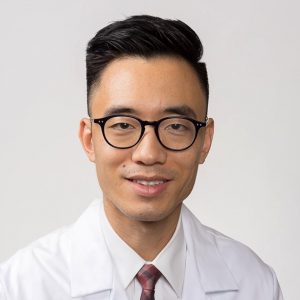
“The support from our faculty is amazing. They are available at all hours of the day to help. Because of their dedication to teaching, I have hit the ground running in my own practice as an attending.”
– Kirk Hou, MD. PhD.
Class of 2021
Assistant Professor, UCLA
Clinical Training
The faculty at UCLA Stein Eye Institute are world renowned. Under their guidance, fellows are exposed to all fields within medical and surgical retina including but not limited to:
- Ocular Oncology: Fellows receive a broad clinical ocular oncology exposure with Dr. Tara McCannel (Choroidal Melanoma, Intraocular Metastases) and Dr. Colin McCannel (Intraocular Lymphoma/Leukemia, Vasoproliferative tumors). In the operating rooms, fellows learn cutting edge treatment protocols with direct hands on experience including fine needle biopsy, placement of radioactive plaques for tumor brachytherapy and intraocular ultrasound for confirmation of plaque placement alongside our staff ultrasonographer.
- Pediatric Retina and Retinopathy of Prematurity: Fellows have broad exposure to pediatric retina under the supervision of Dr. Irena Tsui. Throughout the course of fellowship, fellows will become facile with the management and treatment of ROP including intravitreal anti-VEGF and ROP laser. Fellows will also gain direct hand-on experience with pediatric virectomy.
- Uveitis: The Stein Eye Institute is fortunate to have two full time uveitis specialists who work closely with our vitreoretinal staff in the management of complex uveitis cases. Fellows will find ample opportunities to diagnose and manage uveitis patients with with the supervision of attendings from both the retina and uveitis services.
- Inherited Retinal Diseases: Given Stein Eye Institute’s large catchment area, we receive many referrals for the evaluation and diagnosis of patients with inherited retinal diseases. Our facilities include a state of the art Visual Electrophysiology Lab let by Dr. Steven Nusinowitz to aid in the evaluation of these patients. Interesting cases are presented weekly at multimodal imaging rounds with Dr. David Sarraf and Dr. Srinivas Sadda.
- Acquired Maculopathies
Didactics
Kreiger Surgical Rounds
Friday Mornings
The crown jewel of the UCLA vitreoretinal training program. Fellows present their cases in a friendly environment with the goals of education and discussion. All faculty are present to provide advice and highlight teaching points to help fellows advance their surgical skills and decision making. Delicious baked goods and coffee are known to make regular appearances. The following podcast is an example of what UCLA fellows can look forward to on a weekly basis:
https://www.aao.org/audio/episode-172-scleral-buckling-pearls-with-dr-buzz-k
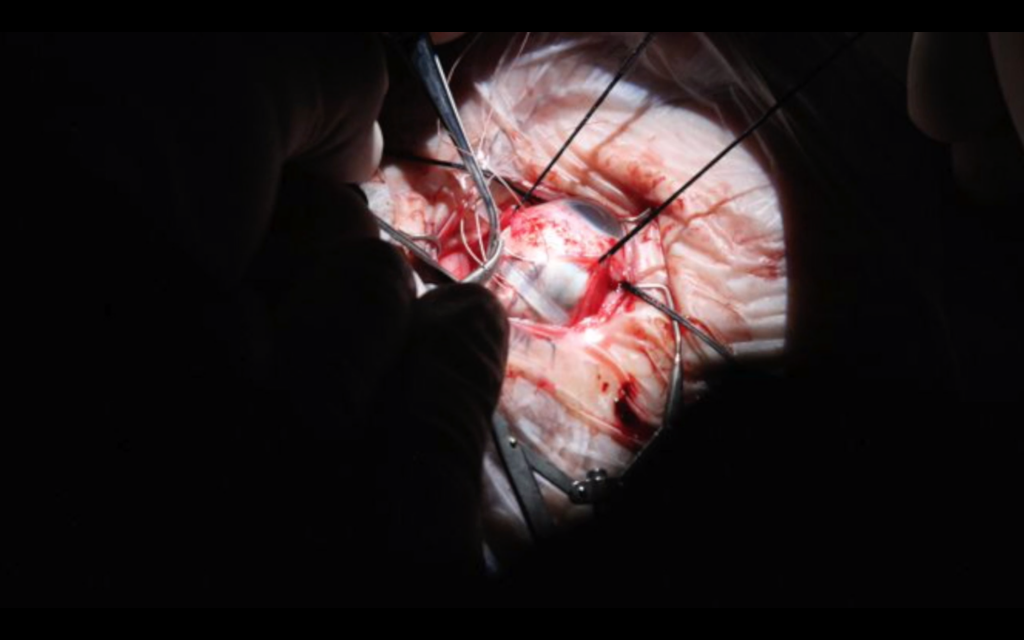
Multimodal Imaging Rounds
Tuesday Evenings
Interesting medical retina cases from attending clinics at Stein/Doheny UCLA as well as resident clinics at our satellite sites are presented with discussion led by Dr. David Sarraf, Dr. Srinivas Sadda, and Dr. Michael Ip. Cases are prepared and presented by chief residents, medical retina fellows, and surgical retina fellows. Fellows are expected to present two to three times a year. Imaging modalities available at UCLA include Optos ultra-widefield angiography, Heidelberg OCT/OCTA, Topcon widefield OCTA, Optovue OCTA, RTX1 Adaptive Optics.
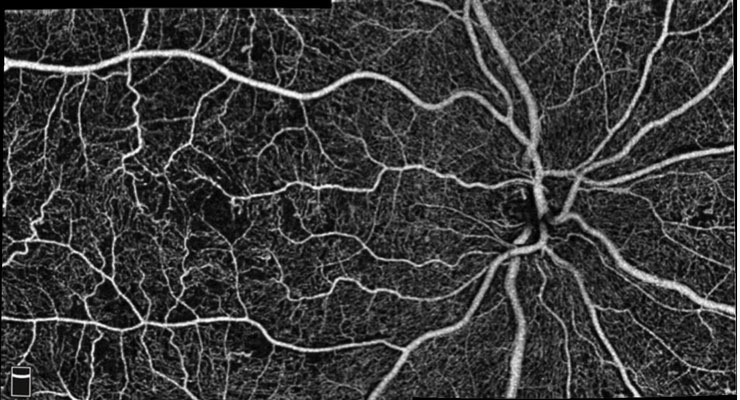
Ground Rounds
Wednesday Afternoons
Faculty and distinguished speakers present cutting-edge research from across all fields of Ophthalmology. Each lecture is preceded by three clinical cases presented by UCLA residents and fellows. Fellows are expected to present a clinical case once over the course of their fellowship.
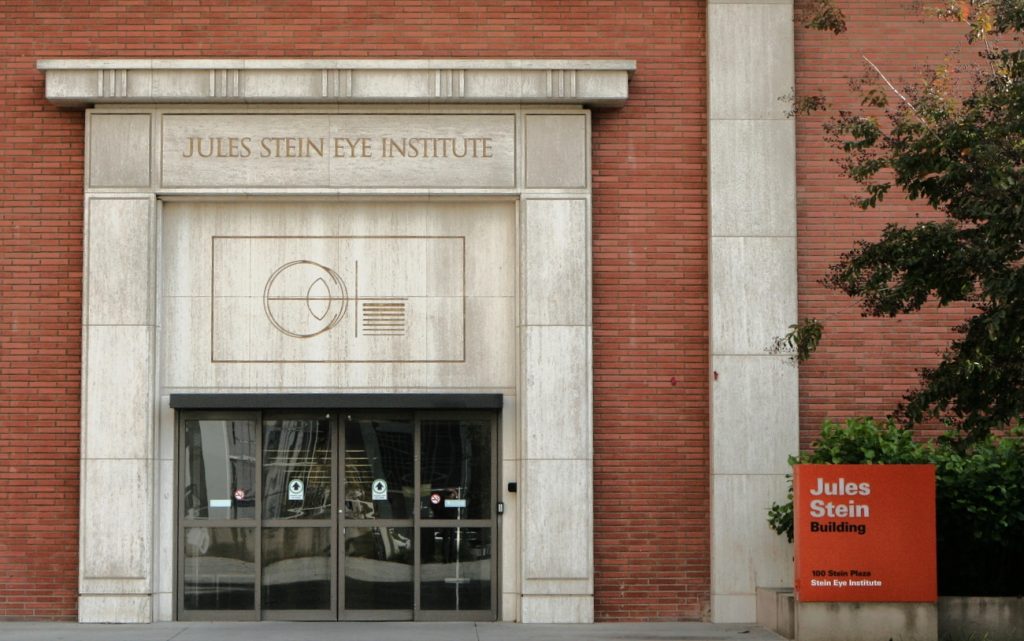
Distribution of Rotations
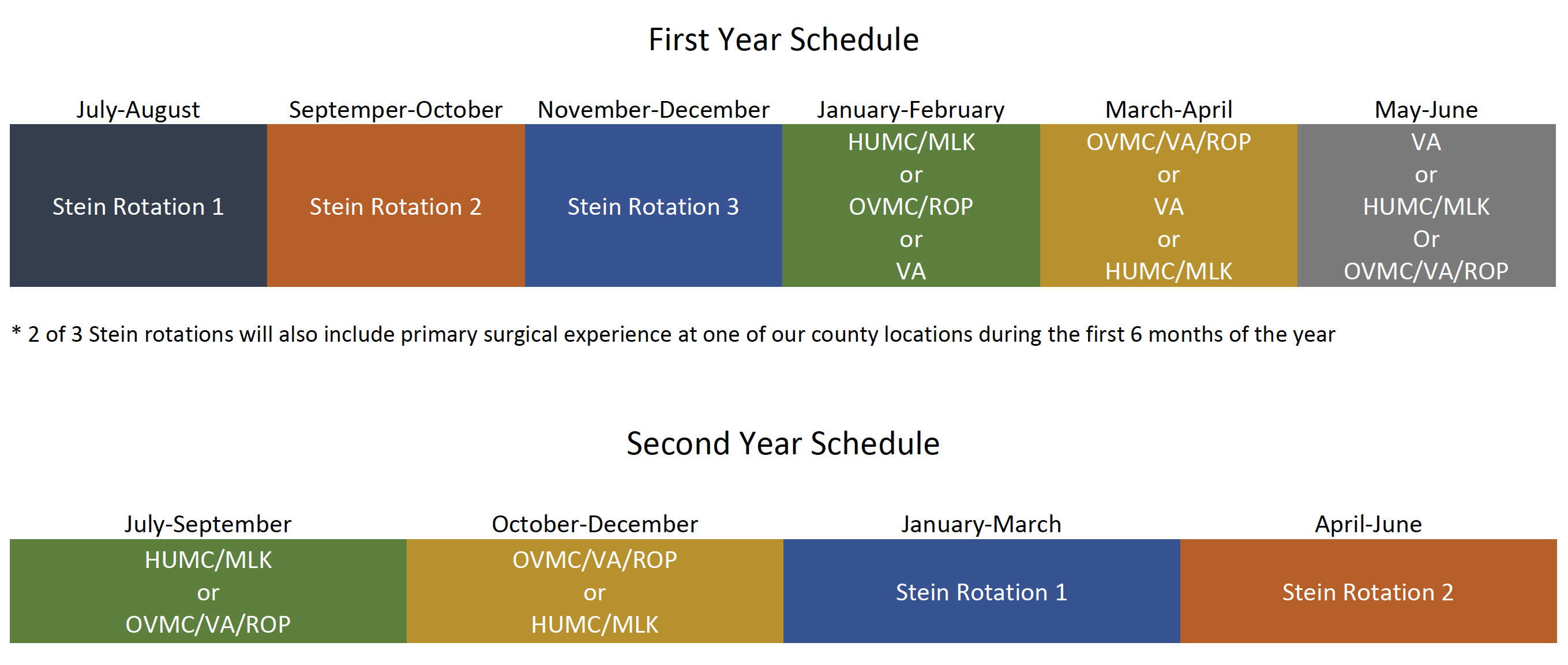
On Stein rotations, fellows have their own clinics in the University Ophthalmology Associates office once a week. This is an opportunity to diagnose and manage their own patients. Fellows are in the operating room with attendings at least two days a week starting from the beginning of fellowship.
Call Distribution
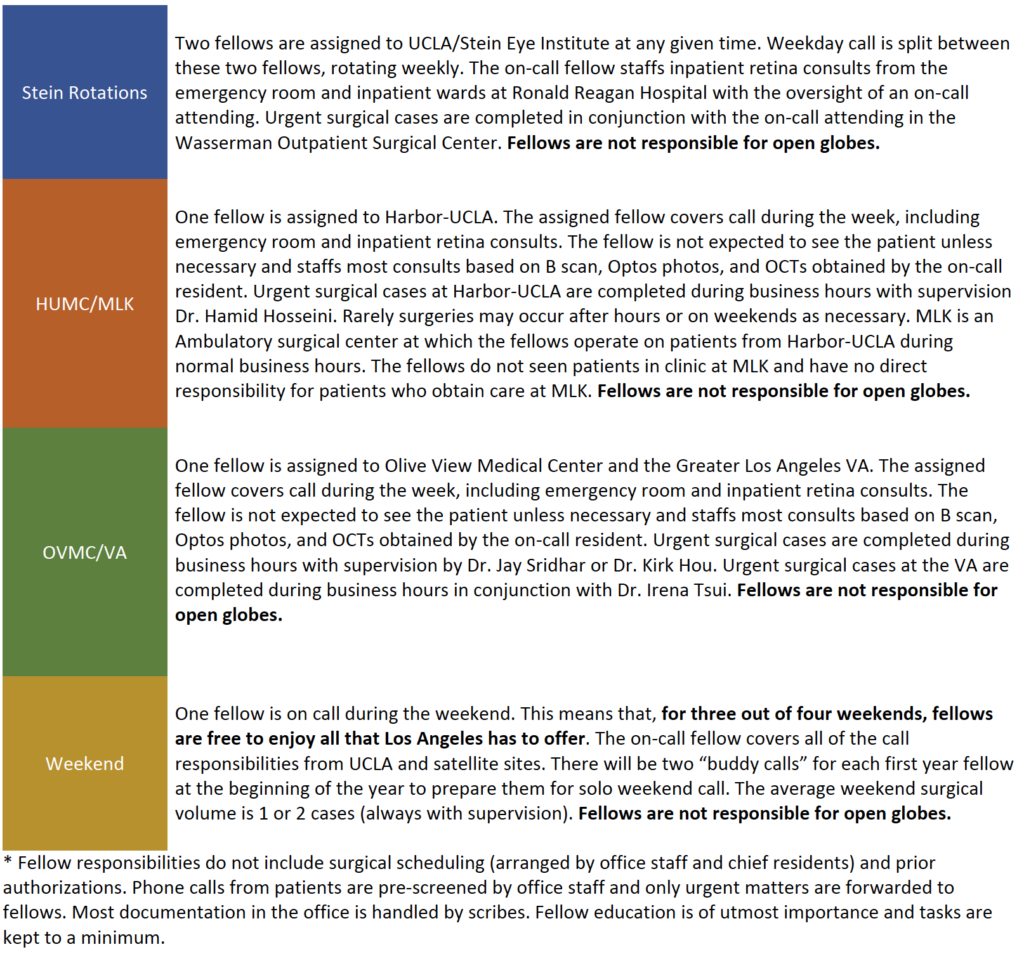
* Fellow responsibilities do not include surgical scheduling (arranged by office staff and chief residents) and prior authorizations. Phone calls from patients are pre-screened by office staff and only urgent matters are forwarded to fellows. Most documentation in the office is handled by scribes. Fellow education is of utmost importance and tasks are kept to a minimum
We look forward to meeting you!
Contact information:
Debbie Sato
Academic Programs Administrator
100 Stein Plaza, Rm 2-132
Los Angeles, CA 90095
(310) 825-4617